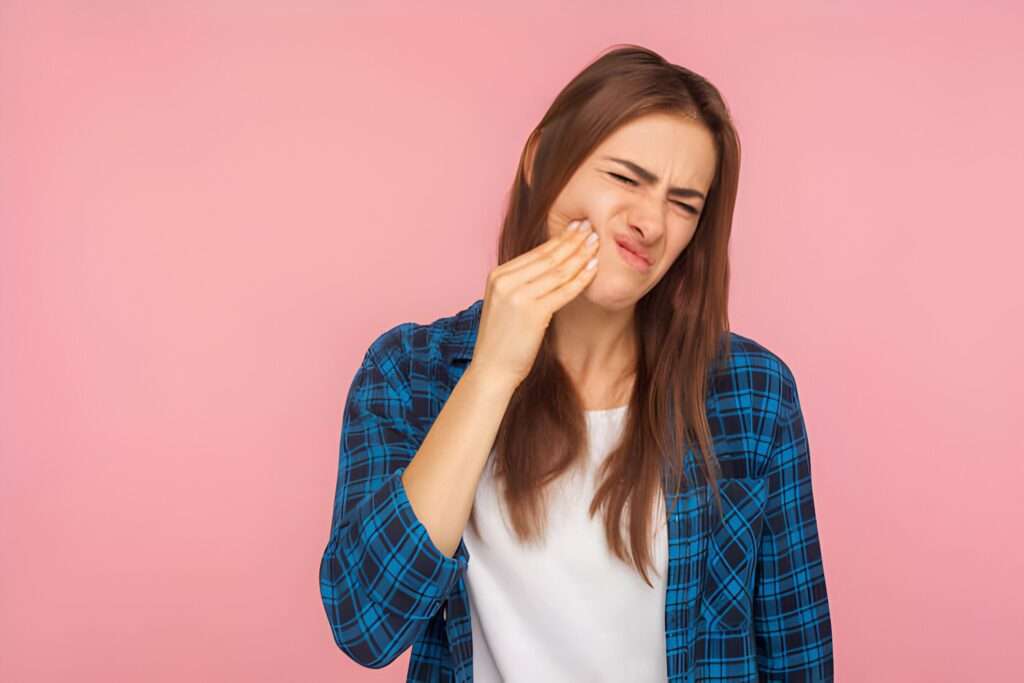Tooth pain can be a real nuisance, making it hard to concentrate on anything else. But when that pain becomes unbearable, it can turn your world upside down. So, what should you do when you find yourself in such a situation? Let’s explore some steps to help you cope with unbearable tooth pain. They will help you regain control of your oral health.
Understanding Unbearable Tooth Pain
Tooth pain can take many forms. It ranges from a constant dull ache to sharp, intermittent bursts. Several factors can trigger it. They include cavities, gum disease, dental injuries, and stress-related teeth grinding. The cause doesn’t matter. The priority is finding relief and fixing the root issue. This will stop more dental problems.
Immediate Tooth Pain Relief
When faced with unbearable tooth pain, you must act fast to ease discomfort. Here are some steps you can take at home while waiting to see a dentist:
- Rinse Your Mouth: Use warm water to clean the affected area and remove any debris or loose particles.
- Over-The-Counter Pain Relief: Consider taking over-the-counter pain relievers like ibuprofen or acetaminophen to reduce inflammation and ease the pain temporarily.
- Apply a Cold Compress:Put it on your cheek near the painful area. This will reduce swelling and numb the pain.
- Avoid Certain Foods: Eat soft, non-acidic, and non-sugary foods. They stop the pain from getting worse.
- Stay Hydrated: Drink plenty of water. It keeps saliva flowing and stops dry mouth. Dry mouth can worsen tooth pain.
Signs You Need Emergency Dental Care
Some toothaches can be managed at home. But, certain signs mean you need urgent dental care. If you experience any of the following symptoms, seek emergency dental care promptly:
- Sudden and Severe Pain: If you have excruciating tooth pain, it doesn’t go away with over-the-counter drugs. This pain could mean a severe dental issue.
- Swelling or Abscess: Swelling in your face, jaw, or gums may mean an infection or abscess. It’s urgent if it’s with severe pain.
- Bleeding Gums: Gums that bleed a lot could mean gum disease or a dental injury. They need immediate attention.
- Broken or Knocked-Out Tooth: A tooth can be broken or knocked out. Dental injuries like this should be fixed quickly to prevent more damage.
- Fever and Other Symptoms: A fever can come with tooth pain. It can also come with swelling or other concerning symptoms. These could mean a severe dental infection that needs immediate medical attention.
What to Expect During Your Emergency Dental Visit
If you need emergency dental care, knowing what to expect during your visit can ease anxiety. Here’s an overview of the typical process:
- Evaluation and Examination: The dentist will fully examine your affected tooth. They may take X-rays to check the issue’s extent.
- Diagnosis: The dentist will diagnose the problem causing your tooth pain. They will do this based on the examination and X-rays.
- Treatment Options: Treatment options will be discussed once the cause is identified. They may include fillings, root canal, extraction, or other procedures.
- Pain Management: We will use immediate pain relief measures, such as local anaesthesia. They will ensure your comfort during the treatment.
- Follow-Up Appointments: Follow-up appointments depend on the treatment plan. You may need them for more care or to monitor your progress.
Preventing Unbearable Toothache
Toothaches can be unavoidable. But, you can take steps to reduce your risk of unbearable tooth pain.
- Maintain Good Oral Hygiene: Brush your teeth twice a day with fluoride toothpaste. Floss often to remove plaque and stop tooth decay.
- Limit Sugary Foods and Drinks: They can cause tooth decay, so limit them.
- Visit Your Dentist Regularly: Schedule routine check-ups and cleanings. They can detect and fix dental issues early.
- Wear Protective Gear: If you play contact sports or grind your teeth, consider wearing a mouthguard. It will protect your teeth from injury.
Also read: How to Book an Emergency Dentist Appointment in the UK?
Conclusion
Tooth pain hurts a lot. But, acting fast and seeing a dentist can ease the pain and stop problems. Know the signs for emergency dental care. Take preventive steps to keep your mouth healthy. You can also avoid the agony of terrible toothaches.
Don’t Suffer Alone: Reach Out for Gentle Relief at Alverna House Dental Practice
If you have awful tooth pain or any dental emergency, contact us at Alverna House Dental Practice. Our experienced team is here to provide you with the care and relief you need. Remember, your oral health is our priority.
Frequently Asked Questions (FAQs)
What causes unbearable tooth pain?
Tooth pain can be unbearable. It can be due to issues like cavities. These include infected teeth. They also include cracked teeth, broken dental work, teeth grinding, and gum disease.
How long does a toothache last?
The duration of a toothache varies based on the underlying cause. Temporary gum irritation may go away in a day or two. But, cavities or abscesses may persist.
How do dentists treat toothaches?
Dentists assess the cause of the toothache through examination and X-rays. Treatments include antibiotics and pain relievers. They also include dental fillings, crowns, root canals, and tooth removal. The treatment used depends on the severity.
Are there home remedies for toothaches?
Home remedies, like saltwater rinses and hydrogen peroxide rinses, and applying ice packs, can offer temporary relief from toothaches. However, they do not address the underlying dental issue.
Can toothaches go away on their own?
Minor toothaches, from things like temporary gum irritation, may go away on their own. They may do so within a day or two. However, persistent toothaches usually indicate an underlying dental problem requiring treatment.
When should I see a dentist for a toothache?
You must see a dentist if you have a toothache for over two days. Also, if your face or jaw swells, or if it hurts to open your mouth wide.
When should I go to the emergency room for a toothache?
You should go to the emergency room if you have severe swelling. Also, go if you have unbearable tooth pain. It won’t stop with medicine, or uncontrolled bleeding. Or, you have a fever over 101°F (38.33°C).
How can toothaches be prevented?
Keep good oral hygiene. Brush and floss regularly. Also, limit sugary foods and drinks. Visit your dentist for checkups. If you grind your teeth, wear a mouthguard. This will help prevent toothaches.



